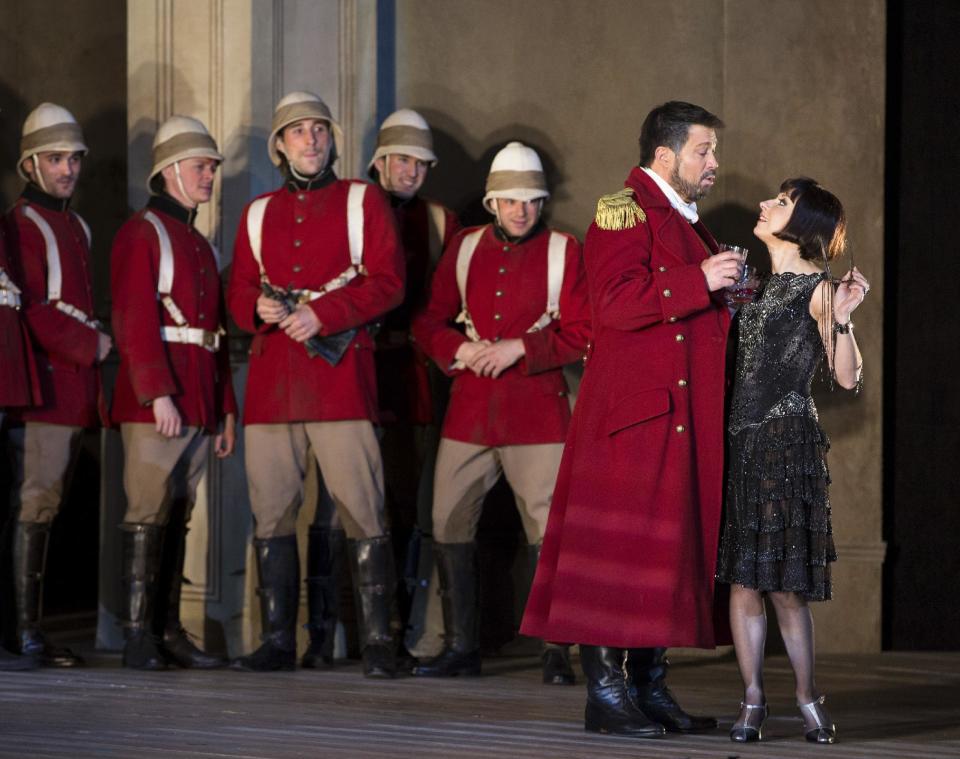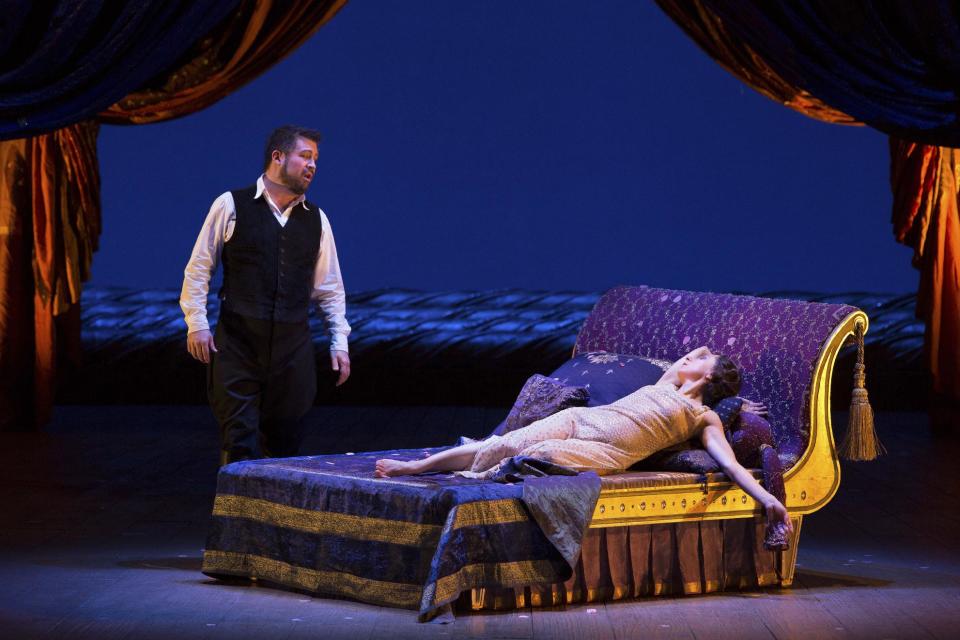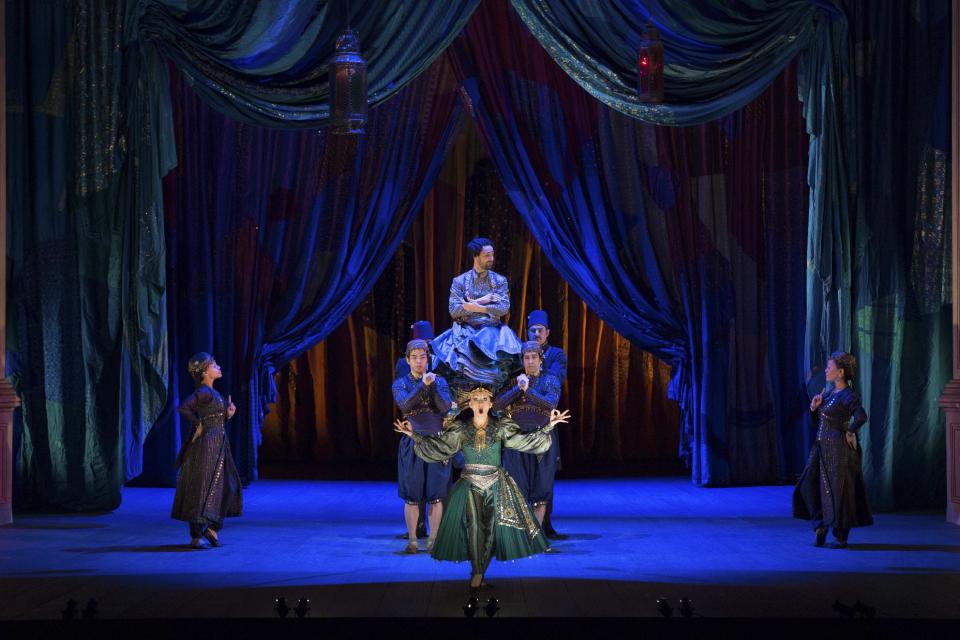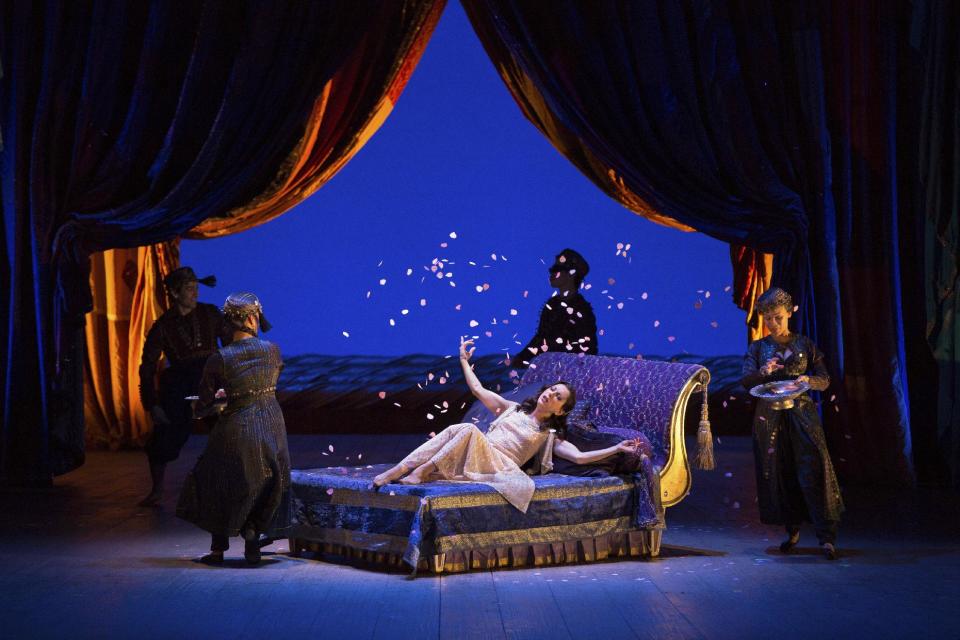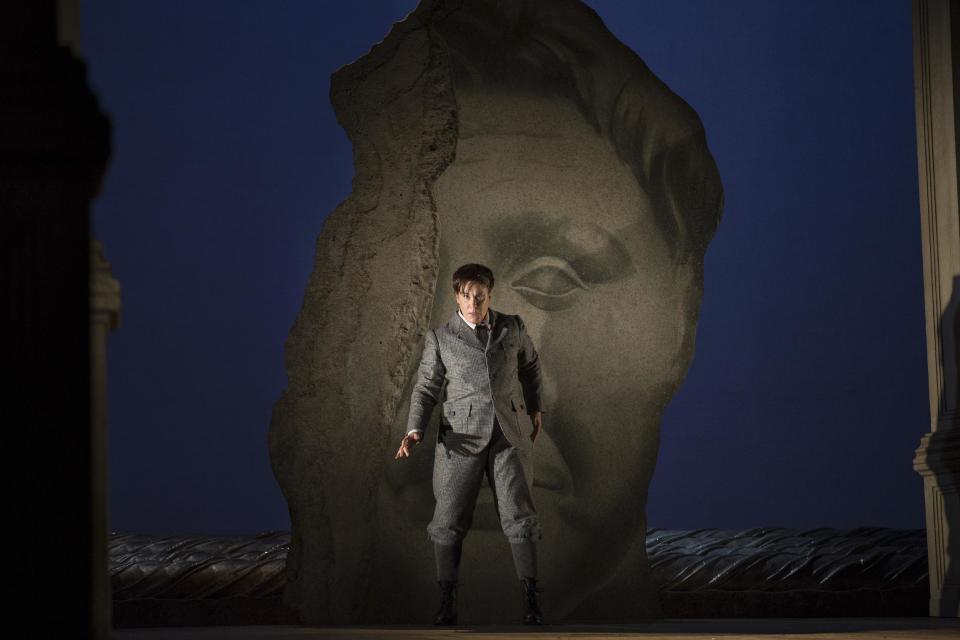Review: Handel in Bollywood comes to the Met
NEW YORK (AP) — Like a Christmas pudding, David McVicar's take on Handel's "Giulio Cesare" is so stuffed full of treats and surprises that even if some are not to your taste, you're likely to enjoy what you find in the next slice.
It arrived at the Metropolitan Opera on Thursday night as the last new production of the 2012-13 season and proved a mostly buoyant affair, compromised only by some uneven singing in the lead roles.
This is the so-called "Bollywood" version that premiered at England's Glyndebourne Festival in 2005 and has since been seen at Chicago's Lyric Opera as well. McVicar cheerfully admits to playing fast and loose with any notions of historical accuracy or consistency. Instead he takes elements of ancient Rome and Egypt and mixes them with British colonialism, the flapper era of the 1920s and dance moves — amusingly choreographed by Andrew George — straight out of Indian movie musicals.
Anachronisms abound, with servants wheeling in tea sets, blimps hovering over warships and a pistol shot to dispatch the villain (though all the dead come back to life in time for a happy ending).
It's all somehow weirdly appropriate to an opera written in 1724 that contains one of Handel's most varied scores and veers constantly from the farce of low comedy to the seriousness of high drama, as Caesar's romance with Cleopatra is set against military plots and counterplots.
In the title role, countertenor David Daniels has tremendous presence and sings much of his music with eloquence. But at this stage of his career, his middle register sounds underpowered, and rapid coloratura puts a strain on his breath control. This was especially noticeable in his opening arias. Soprano Natalie Dessay as Cleopatra also was slow to warm up, and seemed uncomfortable with her dance moves in the opening scenes. She was at her best in her more melancholy arias, like the haunting "Piangero, la sorte mia," though even there it was apparent that her top notes no longer come easily.
The two most consistent performances were in supporting roles. Mezzo-soprano Alice Coote made a fiery and rich-voiced Sesto, the Roman nobleman who seeks revenge against Cleopatra's brother Tolomeo for beheading her brother. In perhaps the most gorgeous number in the entire score, Coote's voice blended beautifully with the lower-voiced mezzo Patricia Barden (playing her mother, Cornelia) as they sang a mournful duet before being separated and taken off to prison.
The other standout was countertenor Christophe Dumaux as Tolomeo. He not only sang his tricky arias with fresh, even tone and immaculate technique, he also acted up a storm, making this lascivious villain into a comic delight. Dumaux managed to steal just about every scene he was in — even dashing off a somersault at one point in his exuberance.
The clever set by Robert Jones consists of a receding series of false prosceniums with a make-believe ocean at the rear. Panels open and close depending on how much of the stage is needed for a particular scene, and when the action moves to Cleopatra's lair, the arches are covered by billowing curtains in rich hues of red, green and purple. Brigitte Reiffenstuel designed the lavish costumes, which include redcoats for Caesar and his army, fezzes for the Egyptian servants and a wardrobe for Cleopatra ranging from a slinky cocktail dress to a regal gown.
Harry Bicket led the orchestra in a nobly restrained and precise reading of the score, though some uncharacteristically sloppy work in the brass section marred an orchestral interlude leading to the final scene.
There are nine more performances, including a matinee Saturday, April 27, that will be shown live in HD in movie theaters around the world. One note of caution: "Giulio Cesare" makes for a long sit, lasting 4½ hours including two intermissions. By the end of the night, there were large pockets of empty seats, but those who stuck around rewarded the cast and production team with vociferous cheers.
___
Online:
http://www.metoperafamily.org/metopera/
